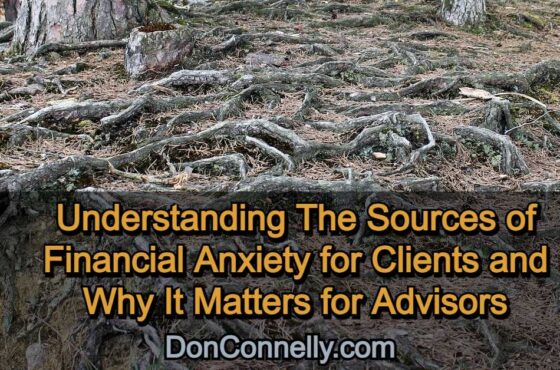Winning Over the Children of Wealthy Clients
 As evidenced by the great wealth transfer of $30 trillion currently underway from the baby boomers to the next generations, wealth is generational, with far-reaching impacts beyond any one client. For financial advisors, it could be an unprecedented opportunity to grow assets or the greatest threat to their survival.
As evidenced by the great wealth transfer of $30 trillion currently underway from the baby boomers to the next generations, wealth is generational, with far-reaching impacts beyond any one client. For financial advisors, it could be an unprecedented opportunity to grow assets or the greatest threat to their survival.
Why the disparity in outlook? Because some advisors will be better positioned than others to capture the attention and trust of the next generations. Advisors who fail to connect with the children of their baby boomer clients stand a better than even chance they will lose the assets upon their transfer.
The failure to realize that, when working with a client, you are also working with everyone dependent on them leads to advisors losing an average of 70% to 80% of a client’s assets following their death. A big chunk is lost through 70% of women who leave their advisor within a year of being widowed. And with just 80% of young investors choosing not to work with their parent’s advisor, years of work building a profitable client relationship can just walk out the door.
Financial advisors must view their clients’ wealth as generational wealth, belonging to everyone in the family. However, as the statistics show, it would be foolish to assume that when a client dies, the surviving family members will simply fall in line. Winning over the children of wealthy clients requires a deliberate strategy and a holistic approach from the get-go, involving a combination of building trust, understanding their unique needs, and providing value.
Here are some strategies to consider:
#1. Develop personal relationships
Just as building trusting relationships with your clients is critical, it’s equally essential to do the same with their children. You must take the time to understand their ambitions, interests, and concerns. Once your clients know you are committed to the entire family’s success, they can help create opportunities to get the children involved in the process. That includes organizing family meetings to discuss financial matters and making the children active participants in a multi-generational planning process.
#2. Education and communication
Look for opportunities to educate the family and explain relevant financial concepts. By breaking down complex concepts into simple, understandable terms, you can help demystify the world of finance, making them feel more comfortable. You build trust as their educator and guide, and they learn to rely on you for information. Consider offering workshops or resources on financial literacy.
Also, you’ll want to keep the children in the loop on updates to the family’s financial situation and investment strategies. Regular communication can build trust and transparency.
#3. Digital Engagement
Although many factors can contribute to the heirs’ decision to take the money and run, financial advisors’ inability to relate to the next generations in a manner compatible with their preferences and expectations for social interaction and communication can weigh the heaviest.Advisors must expand their digital capabilities to appeal to younger generations, which might include providing access to a robo-advice platform. That “have it your way” proposition not only appeals to young adults but can also allow you to scale your fees to the level of service you provide your client’s children.
It’s also critical to maintain a professional social media presence to stay connected with young adults and provide valuable information in a format they’re familiar with.
#4. Customized financial planning
If you want to show the children that you are invested in their individual success, be prepared to tailor your advice to their unique goals and needs. Considering that education costs are often a concern, you can become a valuable resource by providing guidance on managing student loans and planning for education expenses.
#5. Engage in philanthropy
Many wealthy families engage in philanthropic activities. Look for opportunities to discuss the family’s charitable initiatives, making sure to involve the younger generation. This will help the family develop shared values while creating a sense of purpose and responsibility.
#6. Adapt to changing values
You must recognize that younger generations have different values and priorities, requiring you to adapt your advice and strategies to align with their evolving perspectives. For example, younger people tend to value socially responsible investing, so your advice should align with ethical and sustainable practices.
It’s all about building relationships and letting all family members get to know you as you work to earn their trust. Understanding the specific needs of each individual is critical. If they trust your judgment and see that you are genuinely committed to their financial well-being, they will have no reason to leave.
Watch this 3-minute video to learn how our 24-step training program will help you develop and hone the soft skills you need to connect with clients, build lasting relationships and take your business to the next level.
See program details and enroll today!
Available as a self-paced program (always open) and as a 12-week coaching program (open onlyn a couple of times a year), this training will change the way you view your practice and will give you an enormous advantage over your competition. Select your format and enroll now!



